Port Fourchon: A Gateway to the Gulf of Mexico
Related Articles: Port Fourchon: A Gateway to the Gulf of Mexico
Introduction
In this auspicious occasion, we are delighted to delve into the intriguing topic related to Port Fourchon: A Gateway to the Gulf of Mexico. Let’s weave interesting information and offer fresh perspectives to the readers.
Table of Content
Port Fourchon: A Gateway to the Gulf of Mexico

Port Fourchon, located on the southern tip of Louisiana’s Terrebonne Parish, is a crucial hub for the energy industry, serving as the primary gateway for offshore oil and gas exploration and production in the Gulf of Mexico. Its strategic location and robust infrastructure have made it a vital economic engine for the region, supporting thousands of jobs and generating significant revenue.
Strategic Location and Infrastructure:
Port Fourchon’s strategic location at the mouth of the Mississippi River Delta provides direct access to the deep waters of the Gulf of Mexico. This proximity to offshore oil and gas fields, combined with its deepwater port facilities, makes it an ideal base for supporting offshore operations.
The port boasts a comprehensive infrastructure that includes:
- Deepwater docks: Capable of handling large vessels, including drilling rigs, supply boats, and support vessels.
- Extensive laydown yards: Providing ample space for storage of equipment, materials, and supplies.
- Specialized facilities: Including fabrication yards, repair shops, and marine terminals, catering to the unique needs of the offshore energy industry.
- Efficient logistics network: Connecting the port to major transportation routes, including highways, railroads, and pipelines.
Economic Significance and Impact:
Port Fourchon’s economic impact extends far beyond the immediate region. It serves as a major driver of economic activity in Louisiana and the surrounding states, contributing significantly to:
- Job creation: The port supports thousands of jobs directly and indirectly, in sectors like oil and gas production, shipbuilding, logistics, and service industries.
- Revenue generation: The port generates significant revenue through lease fees, port charges, and related economic activity, benefiting local and state governments.
- Tax base: The port’s economic activity contributes significantly to the tax base of the region, supporting essential public services and infrastructure.
Key Industries and Activities:
Port Fourchon is the central hub for various activities related to the offshore energy industry, including:
- Offshore oil and gas exploration and production: The port serves as the primary staging ground for offshore drilling operations, supplying rigs, equipment, and personnel.
- Pipeline construction and maintenance: The port supports the construction, installation, and maintenance of pipelines connecting offshore platforms to onshore processing facilities.
- Subsea infrastructure: The port provides services for the installation, maintenance, and repair of subsea equipment, including pipelines, cables, and wellheads.
- Marine construction and repair: The port offers facilities for the construction, repair, and maintenance of vessels used in offshore operations.
Challenges and Future Outlook:
Despite its vital role, Port Fourchon faces various challenges, including:
- Environmental concerns: The offshore oil and gas industry is subject to environmental regulations and concerns related to potential spills and habitat damage.
- Market fluctuations: The price of oil and gas can fluctuate significantly, impacting the demand for offshore exploration and production.
- Infrastructure maintenance: The port’s infrastructure requires ongoing maintenance and upgrades to accommodate the evolving needs of the offshore energy industry.
Looking ahead, Port Fourchon is expected to play a pivotal role in the development of renewable energy sources, such as offshore wind farms, in the Gulf of Mexico. The port’s infrastructure and expertise can be leveraged to support the construction, operation, and maintenance of these renewable energy projects.
FAQs about Port Fourchon:
1. What is the significance of Port Fourchon?
Port Fourchon is a crucial hub for the offshore oil and gas industry in the Gulf of Mexico, serving as a primary gateway for exploration and production activities. Its strategic location and robust infrastructure make it a vital economic engine for the region.
2. What industries are supported by Port Fourchon?
Port Fourchon supports various industries related to the offshore energy sector, including oil and gas exploration and production, pipeline construction and maintenance, subsea infrastructure, and marine construction and repair.
3. What are the challenges facing Port Fourchon?
Port Fourchon faces challenges such as environmental concerns related to offshore oil and gas operations, market fluctuations in energy prices, and the need for ongoing infrastructure maintenance and upgrades.
4. What is the future outlook for Port Fourchon?
Port Fourchon is expected to play a key role in the development of renewable energy sources, such as offshore wind farms, in the Gulf of Mexico. The port’s infrastructure and expertise can be leveraged to support these projects.
5. What are the economic benefits of Port Fourchon?
Port Fourchon generates significant economic activity, supporting thousands of jobs, generating revenue, and contributing to the tax base of the region.
Tips for Visiting Port Fourchon:
- Plan your visit in advance: Port Fourchon is a working port, and access to certain areas may be restricted. Contact the port authority for information on visitor guidelines and restrictions.
- Explore the Port Fourchon Museum: Learn about the history and significance of the port through exhibits and displays.
- Take a tour of the port: Many tour operators offer guided tours of the port, providing insights into its operations and infrastructure.
- Visit the Louisiana Offshore Oil Port (LOOP): Located near Port Fourchon, LOOP is a major oil terminal that handles a significant volume of oil imports.
- Enjoy the natural beauty of the Louisiana coast: The region surrounding Port Fourchon offers opportunities for fishing, boating, and exploring the natural beauty of the Gulf Coast.
Conclusion:
Port Fourchon stands as a testament to the ingenuity and resourcefulness of the offshore energy industry. Its strategic location, robust infrastructure, and vital role in supporting the Gulf of Mexico’s energy sector make it a crucial economic driver for the region and beyond. As the industry evolves and embraces new technologies, Port Fourchon is poised to remain a vital hub, contributing to the energy future of the Gulf of Mexico and the nation.
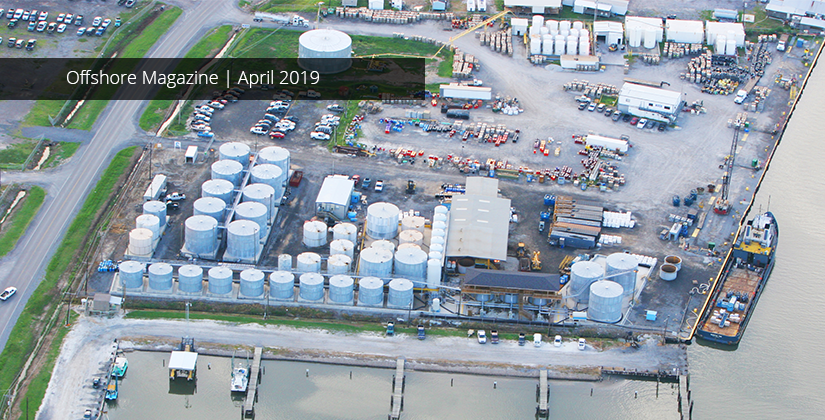

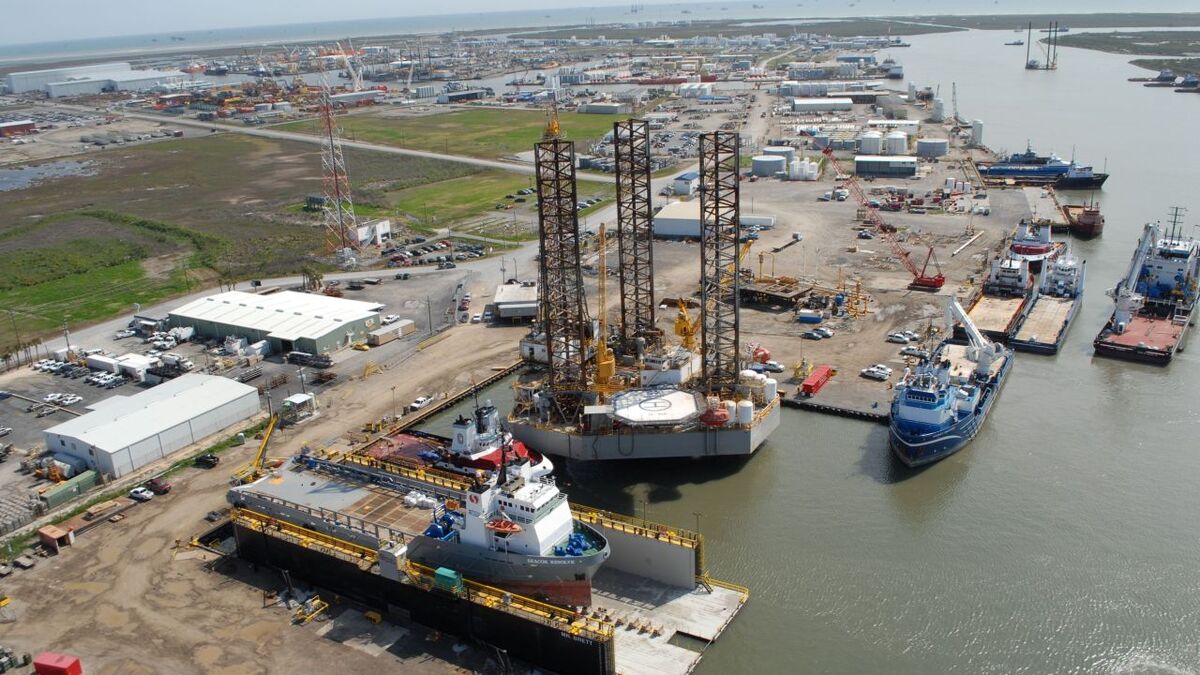
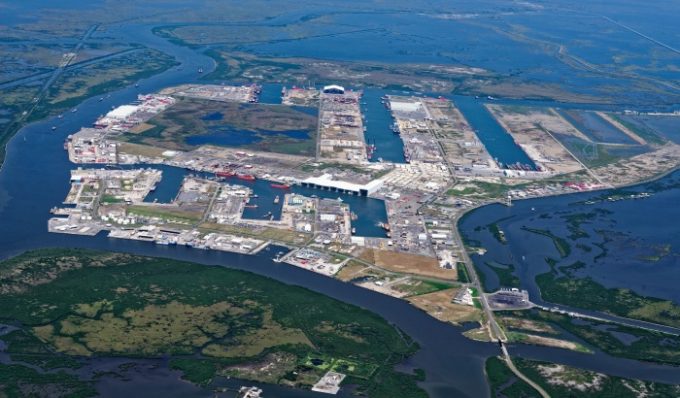
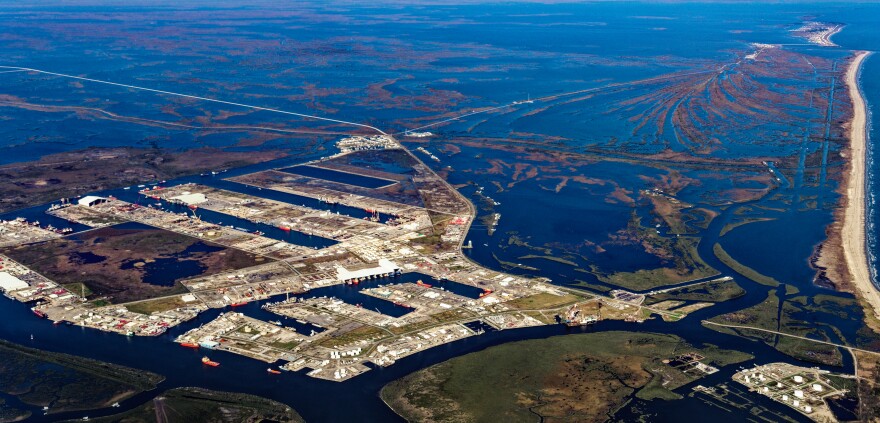
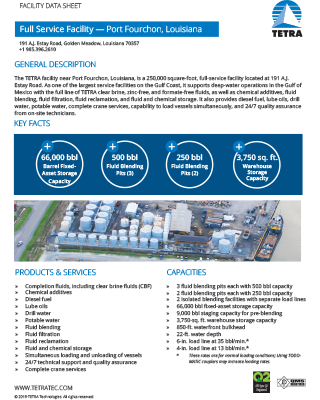
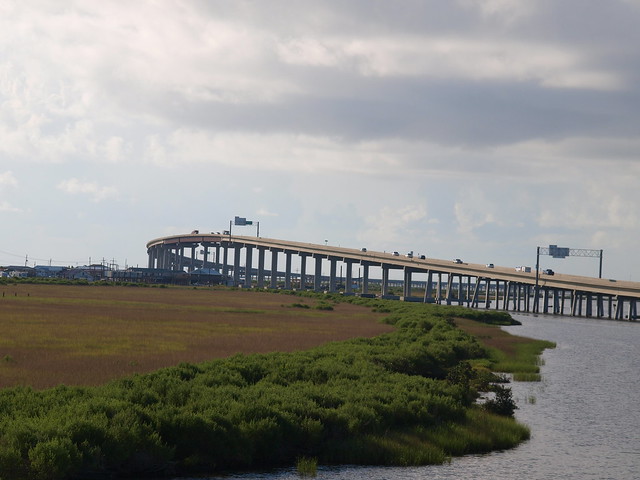
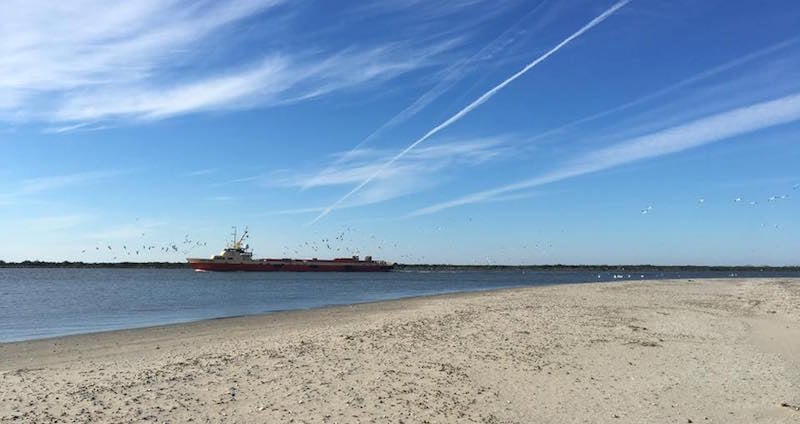
Closure
Thus, we hope this article has provided valuable insights into Port Fourchon: A Gateway to the Gulf of Mexico. We hope you find this article informative and beneficial. See you in our next article!